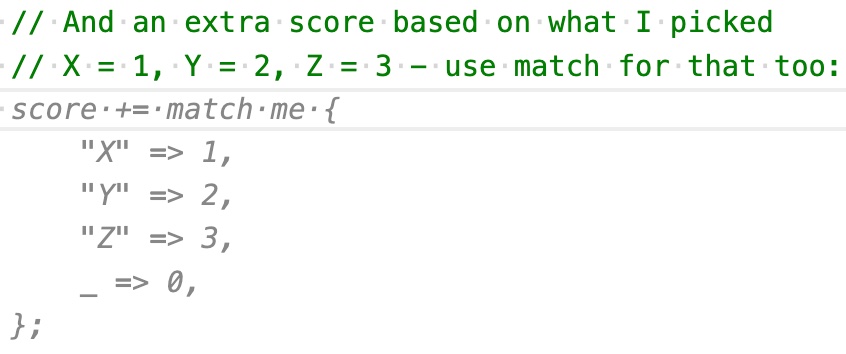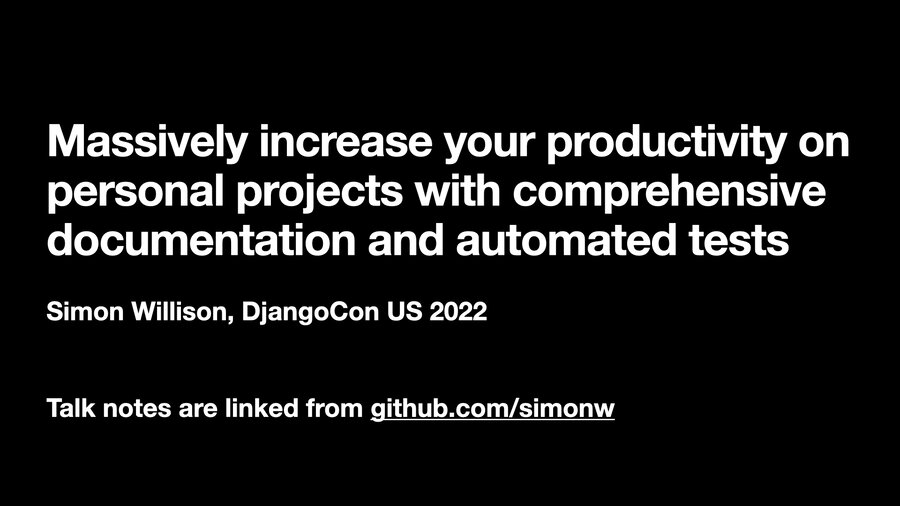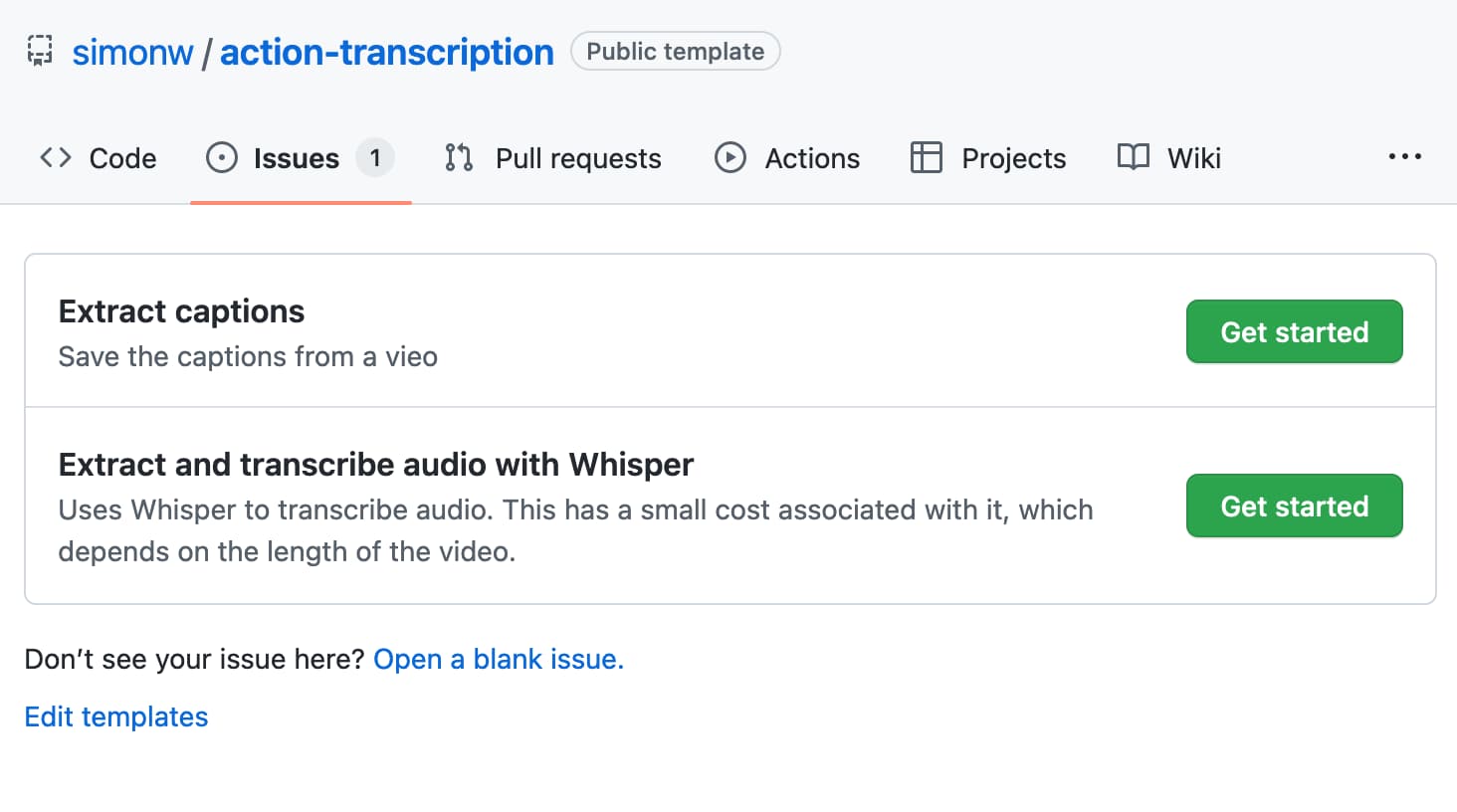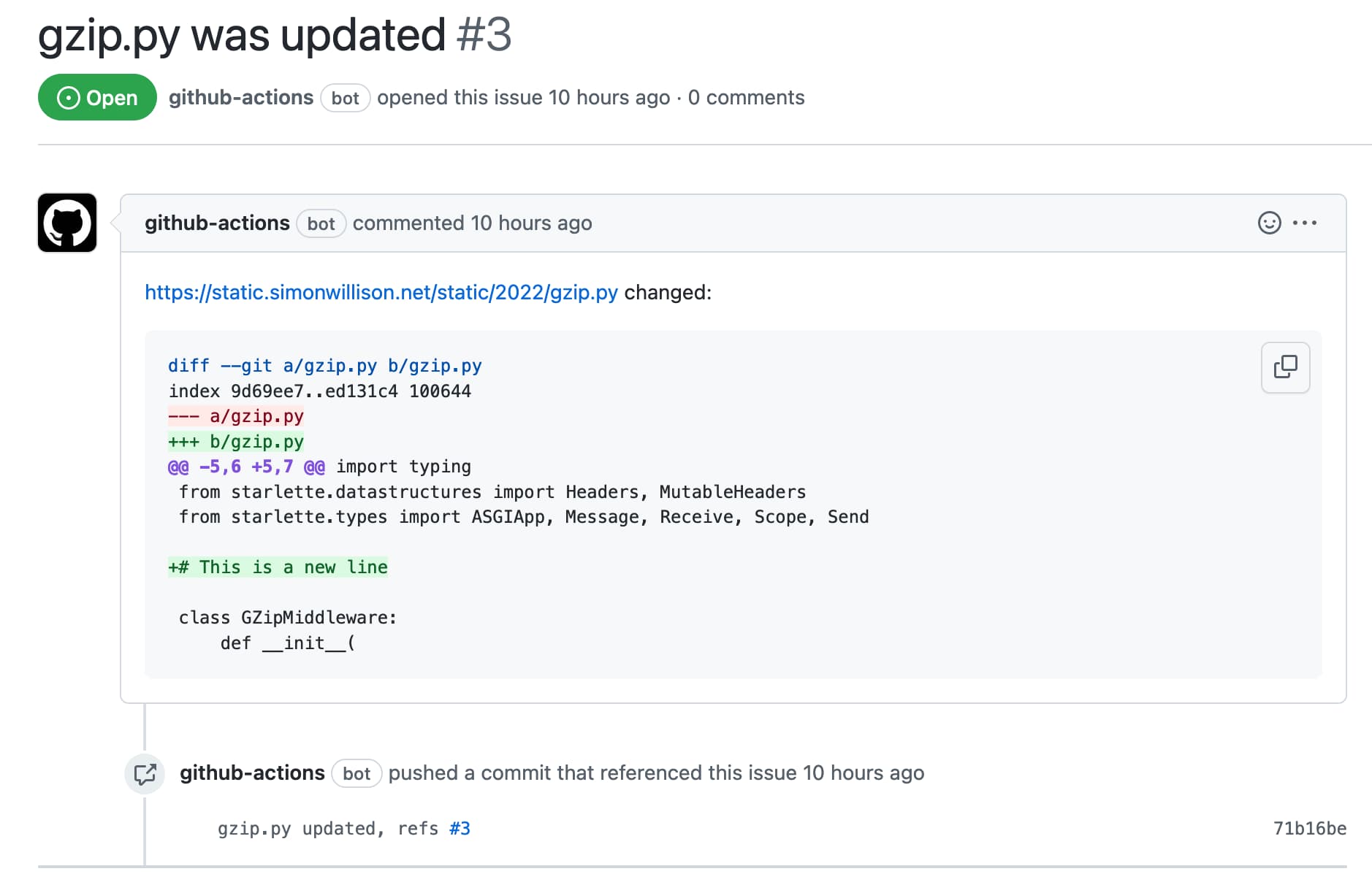14 posts tagged “github-issues”
GitHub Issues is GitHub's issue tracker and project planning software suite.
2025
GitHub Issues search now supports nested queries and boolean operators: Here’s how we (re)built it. GitHub Issues got a significant search upgrade back in January. Deborah Digges provides some behind the scene details about how it works and how they rolled it out.
The signature new feature is complex boolean logic: you can now search for things like is:issue state:open author:rileybroughten (type:Bug OR type:Epic), up to five levels of nesting deep.
Queries are parsed into an AST using the Ruby parslet PEG grammar library. The AST is then compiled into a nested Elasticsearch bool JSON query.
GitHub Issues search deals with around 2,000 queries a second so robust testing is extremely important! The team rolled it out invisibly to 1% of live traffic, running the new implementation via a queue and competing the number of results returned to try and spot any degradations compared to the old production code.
GitHub issues is almost the best notebook in the world.
Free and unlimited, for both public and private notes.
Comprehensive Markdown support, including syntax highlighting for almost any language. Plus you can drag and drop images or videos directly onto a note.
It has fantastic inter-linking abilities. You can paste in URLs to other issues (in any other repository on GitHub) in a markdown list like this:
- https://github.com/simonw/llm/issues/1078
- https://github.com/simonw/llm/issues/1080
Your issue will pull in the title of the other issue, plus that other issue will get back a link to yours - taking issue visibility rules into account.
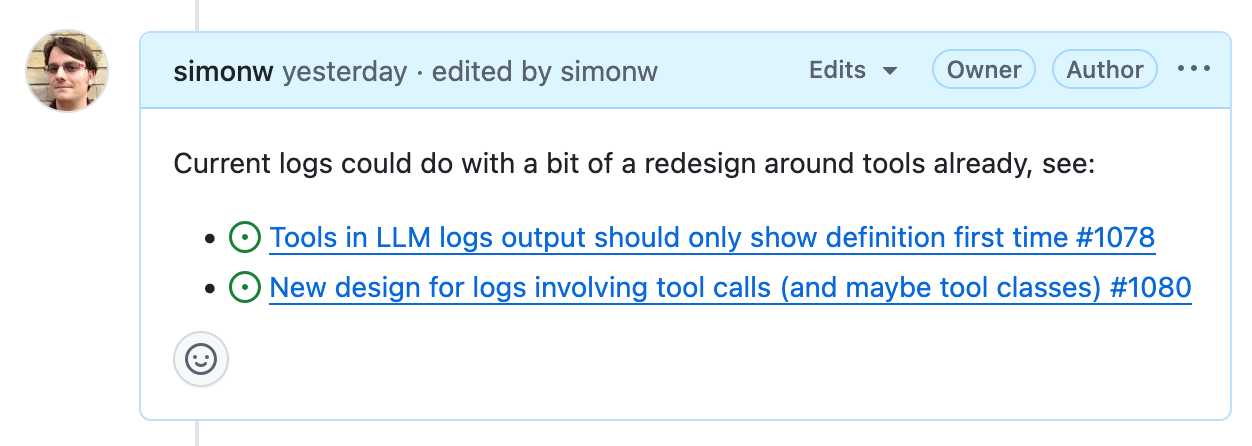
It has excellent search, both within a repo, across all of your repos or even across the whole of GitHub if you've completely forgotten where you put something.
It has a comprehensive API, both for exporting notes and creating and editing new ones. Add GitHub Actions, triggered by issue events, and you can automate it to do almost anything.
The one missing feature? Synchronized offline support. I still mostly default to Apple Notes on my phone purely because it works with or without the internet and syncs up with my laptop later on.
A few extra notes inspired by the discussion of this post on Hacker News:
- I'm not worried about privacy here. A lot of companies pay GitHub a lot of money to keep the source code and related assets safe. I do not think GitHub are going to sacrifice that trust to "train a model" or whatever.
- There is always the risk of bug that might expose my notes, across any note platform. That's why I keep things like passwords out of my notes!
- Not paying and not self-hosting is a very important feature. I don't want to risk losing my notes to a configuration or billing error!
- The thing where notes can include checklists using
- [ ] itemsyntax is really useful. You can even do- [ ] #refto reference another issue and the checkbox will be automatically checked when that other issue is closed. - I've experimented with a bunch of ways of backing up my notes locally, such as github-to-sqlite. I'm not running any of them on cron on a separate machine at the moment, but I really should!
- I'll go back to pen and paper as soon as my paper notes can be instantly automatically backed up to at least two different continents.
- GitHub issues also scales! microsoft/vscode has 195,376 issues. flutter/flutter has 106,572. I'm not going to run out of space.
- Having my notes in a format that's easy to pipe into an LLM is really fun. Here's a recent example where I summarized a 50+ comment, 1.5 year long issue thread into a new comment using llm-fragments-github.
I was curious how many issues and comments I've created on GitHub. With Claude's help I figured out you can get that using a GraphQL query:
{
viewer {
issueComments {
totalCount
}
issues {
totalCount
}
}
}
Running that with the GitHub GraphQL Explorer tool gave me this:
{
"data": {
"viewer": {
"issueComments": {
"totalCount": 39087
},
"issues": {
"totalCount": 9413
}
}
}
}
That's 48,500 combined issues and comments!
cityofaustin/atd-data-tech issues. I stumbled across this today while looking for interesting frequently updated data sources from local governments. It turns out the City of Austin's Transportation Data & Technology Services department run everything out of a public GitHub issues instance, which currently has 20,225 closed and 2,002 open issues. They also publish an exported copy of the issues data through the data.austintexas.gov open data portal.
Jules. It seems like everyone is rolling out AI coding assistants that attach to your GitHub account and submit PRs for you right now. We had OpenAI Codex last week, today Microsoft announced GitHub Copilot coding agent (confusingly not the same thing as Copilot Workspace) and I found out just now that Google's Jules, announced in December, is now in a beta preview.
I'm flying home from PyCon but I managed to try out Jules from my phone. I took this GitHub issue thread, converted it to copy-pasteable Markdown with this tool and pasted it into Jules, with no further instructions.
Here's the resulting PR created from its branch. I haven't fully reviewed it yet and the tests aren't passing, so it's hard to evaluate from my phone how well it did. In a cursory first glance it looks like it's covered most of the requirements from the issue thread.
My habit of creating long issue threads where I talk to myself about the features I'm planning is proving to be a good fit for outsourcing implementation work to this new generation of coding assistants.
Evolving GitHub Issues (public preview). GitHub just shipped the largest set of changes to GitHub Issues I can remember in a few years. As an Issues power-user this is directly relevant to me.
The big new features are sub-issues, issue types and boolean operators in search.
Sub-issues look to be a more robust formalization of the existing feature where you could create a - [ ] #123 Markdown list of issues in the issue description to relate issue together and track a 3/5 progress bar. There are now explicit buttons for creating a sub-issue and managing the parent relationship of such, and clicking a sub-issue opens it in a side panel on top of the parent.
Issue types took me a moment to track down: it turns out they are an organization level feature, so they won't show up on repos that belong to a specific user.
Organizations can define issue types that will be available across all of their repos. I created a "Research" one to classify research tasks, joining the default task, bug and feature types.
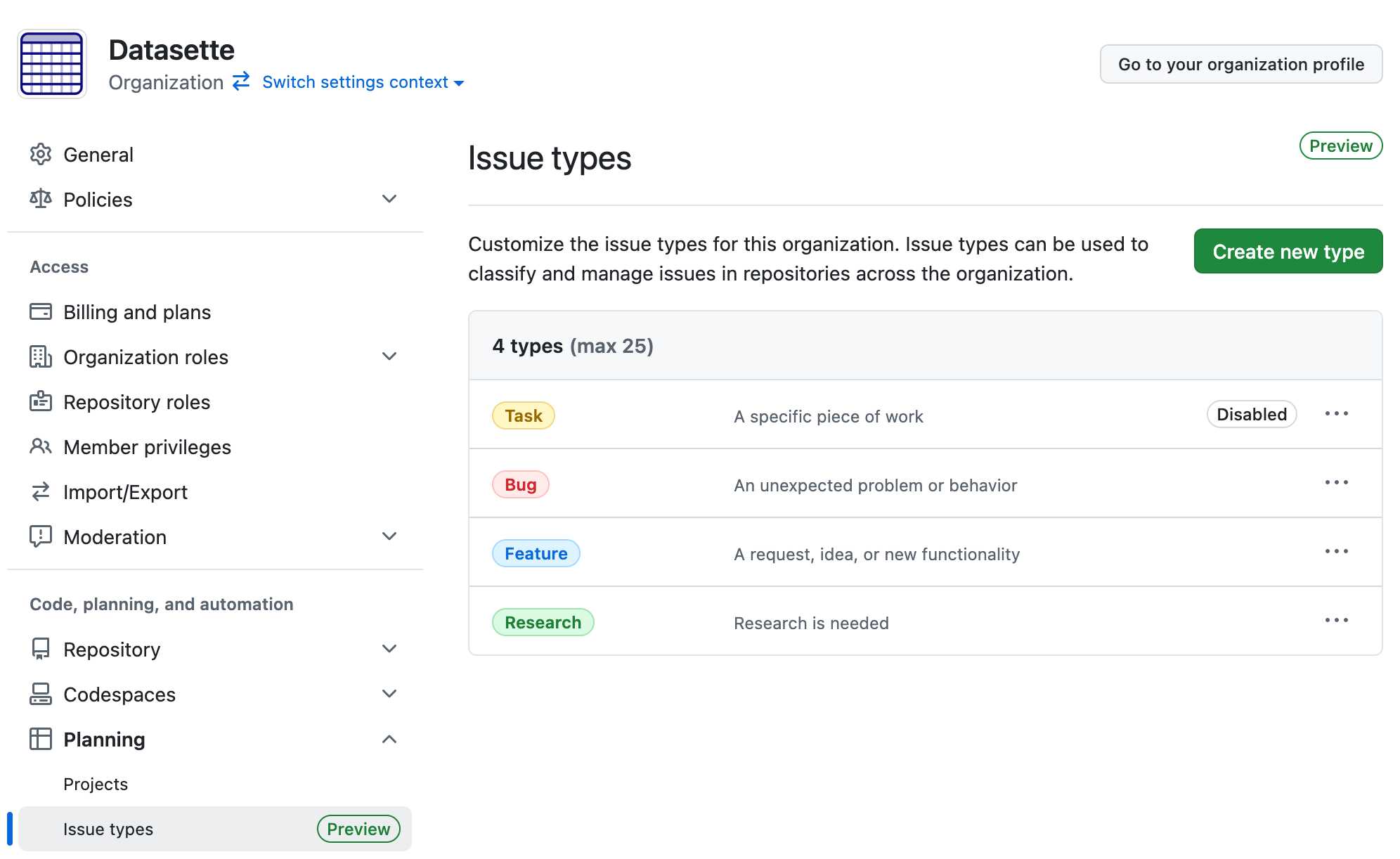
Unlike labels an issue can have just one issue type. You can then search for all issues of a specific type across an entire organization using org:datasette type:"Research" in GitHub search.
The new boolean logic in GitHub search looks like it could be really useful - it includes AND, OR and parenthesis for grouping.
(type:"Bug" AND assignee:octocat) OR (type:"Enhancement" AND assignee:hubot)
I'm not sure if these are available via the GitHub APIs yet.
2022
AI assisted learning: Learning Rust with ChatGPT, Copilot and Advent of Code
I’m using this year’s Advent of Code to learn Rust—with the assistance of GitHub Copilot and OpenAI’s new ChatGPT.
[... 2,661 words]Coping strategies for the serial project hoarder
I gave a talk at DjangoCon US 2022 in San Diego last month about productivity on personal projects, titled “Massively increase your productivity on personal projects with comprehensive documentation and automated tests”.
[... 3,865 words]The Perfect Commit
For the last few years I’ve been trying to center my work around creating what I consider to be the Perfect Commit. This is a single commit that contains all of the following:
[... 2,061 words]A tool to run caption extraction against online videos using Whisper and GitHub Issues/Actions
I released a new project this weekend, built during the Bellingcat Hackathon (I came second!) It’s called Action Transcription and it’s a tool for caturing captions and transcripts from online videos.
[... 1,362 words]upptime (via) “Open-source uptime monitor and status page, powered entirely by GitHub Actions, Issues, and Pages.” This is a very creative (ab)use of GitHub Actions: it runs a scheduled action to check the availability of sites that you specify, records the results in a YAML file (with the commit history tracking them over time) and can automatically open a GitHub issue for you if it detects a new incident.
Automatically opening issues when tracked file content changes
I figured out a GitHub Actions pattern to keep track of a file published somewhere on the internet and automatically open a new repository issue any time the contents of that file changes.
[... 1,211 words]How I build a feature
I’m maintaining a lot of different projects at the moment. I thought it would be useful to describe the process I use for adding a new feature to one of them, using the new sqlite-utils create-database command as an example.
[... 2,850 words]2020
Goodbye Zeit Now v1, hello datasette-publish-now—and talking to myself in GitHub issues
This week I’ve been mostly dealing with the finally announced shutdown of Zeit Now v1. And having long-winded conversations with myself in GitHub issues.
[... 2,050 words]2018
github-trending-repos (via) This is a really clever hack: Vitaliy Potapov built a system for subscribing to a weekly digest of trending GitHub repos in your favourite languages entirely on top of the existing GitHub issues notification system. Find the issue for your particular language and hit “subscribe” and you’ll get an email (or push notification depending on how you get your issue notifications) once a week with the latest trends. The implementation is a 220 line Node.js script which runs on a daily and weekly schedule using Circle CI, so Vitaliy doesn’t even have to host or pay for any of the underlying infrastructure. It’s brilliant.
